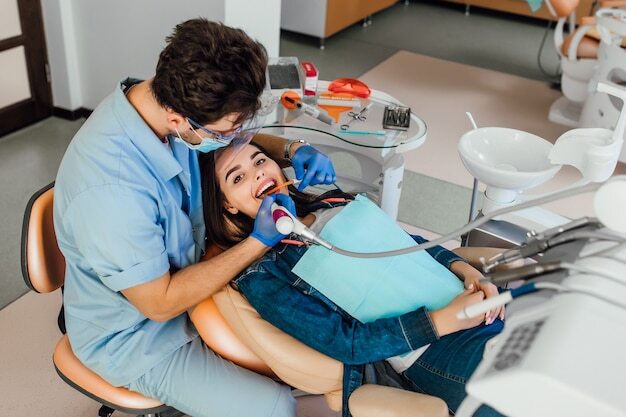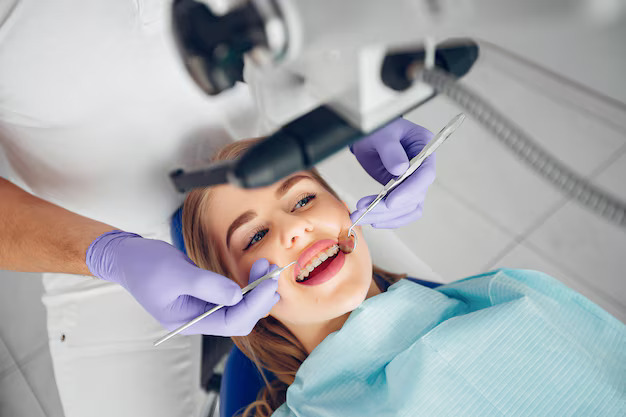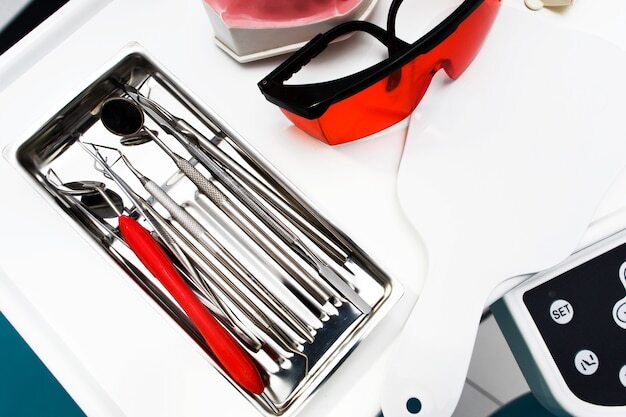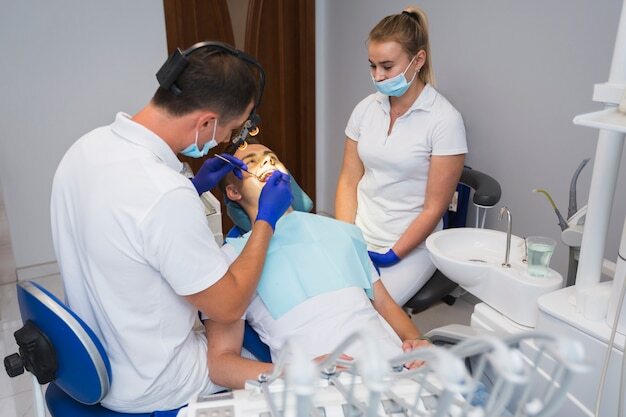Dental Hygiene Terminology- A Handy Glossary
Dental hygiene is an essential part of your daily routine to maintain your oral health. Understanding basic dental hygiene terminology ensures you can better communicate your issues with professionals and make better decisions for your overall health.

Navigating Dental Hygiene Terms and Definitions
Your dentists may have told you about dental hygiene countless times. However, there are many
dental hygiene terminology that can be very confusing for you. Don’t worry, this glossary will explain every term and definition you need to know to maintain your oral hygiene.
Importance of Understanding Dental Terms
You may be wondering why you need to understand these terms. To answer you, how would you understand what your doctor is saying if you don’t know the meaning of dental hygienist terminology? Knowing them will help you better understand your treatment plans and make informed decisions.
How This Glossary Can Help You
This glossary provides you with a simplified version of many jargon used by dental hygienists. You can prepare for your next appointment or upgrade your at-home dental care routine without any confusion.

What is Preventive Dental Care?
You can avoid many serious dental conditions by doing proper preventive dental care. Let’s find out how!
Brushing Techniques
There are two basic techniques for brushing:
- Bass Technique is when you brush under and around your gums to remove plaque and bacteria.
- Charter technique is for people with gum problems. In this technique, you hold your brush at a 45-degree angle and brush away from the gums.
Flossing Methods
There are various types of floss you can use:
- String floss – Uses a waxed string to clean between your teeth.
- Dental tape – Removes residue in wider gaps between teeth using a flat, waxed string.
- Flossettes – These have thin long bristles attached to a handle for better hold.
- Interdental Brushes – It has a small handle with a bottle-like structure with a metal wire at the end covered in small bristles.
- Water pick – These create a strong water stream that goes between your teeth, cleaning any residue.
Role of Fluoride
Fluoride is known to make your enamel strong, preventing tooth decay and cavities. Most oral hygiene products have fluoride as their main ingredient, making it one of the most essential elements in dentistry.
Importance of Regular Dental Checkups
Routine dental visits are important for oral health care. You can get a professional dental cleaning procedure once in a while for plaque removal and tartar buildup, or your dental hygienist can detect dental problems early on, preventing serious consequences.
What Are Some Common Dental Hygiene Procedures?
Your routine dental care involves many procedures to keep your dental health at its best.
Routine Dental Hygiene Appointments
- Examination –Using a mirror and probe, your dental hygienist will check your oral cavity
- Polishing –Removes surface stains from your teeth, leaving them smoother and brighter.
- Fluoride applications – If your dental hygienist finds signs of bruxism, they will use fluoride to strengthen your enamel.
- Dental Sealants – A thin, protective plastic layer is applied to your teeth to prevent enamel damage or decay.
- Gum care – During routine visits, your gums are assessed for any swelling, inflammation, soreness, or redness to catch early signs of gum disease.
Deep Cleaning Procedures
- Dental Scaling – Performed to remove plaque and tartar buildup
- Root planing – Used to smooth roots letting gums reattach

Tools of The Trade- Dental Hygiene Instruments
The dental hygiene process involves many tools be it at your home or in a professional setting. Here, you can find out which tools do what.
Common Tools Used in Hygiene Appointments
-
- Dental mirror – Used to examine hard-to-see areas of the oral cavity, like the back of the mouth and behind teeth.
- Probe – Used to measure the depth of the pockets between teeth and gums.
- Polisher – Buffs the rough edges of your teeth, making them smooth.
- Scaler – It removes plaque and tartar from the tooth surface.
- Curette – It’s used to perform root planning and remove calculus with a hook-like structure.
- Saliva ejector – It’s a long suction tube connected with a vacuum to absorb saliva providing a dry surface for dental procedures.
- Dental drills – These are used to drill decays while shooting water in the mouth.
- Foam trays – These are used during fluoride treatment to prevent the foam from getting inside.
Tools For At-Home Care
Below are some tools that you must have for your routine dental care.
- Toothbrush
- Floss or interdental brushes
- Mouthwash
- Tongue scraper
- Oral care kit
- Whitening products

Dental Hygiene Conditions To Know
Knowing dental hygiene conditions can prevent many severe problems. Let’s have a look:
Plaque and Tartar Buildup
Bacteria in your mouth create a thin, sticky layer that’s called plaque. When this layer is not cleaned properly, it builds up overtime and hardens, becoming crusty tartar. They can cause many problems like tooth decay or gum disease.
Health Terms
- Gingivitis – It’s a gum disorder. Gingivitis symptoms include swelling, redness, and bleeding of the gums.
- Periodontitis – This is an infection caused by bacteria that damages gums severely.
- Gingivectomy – It’s a surgical procedure to remove affected gums for periodontal maintenance.
- Calculus – The hardened plaque behind your gums is called calculus or tartar.
- Abscess – It’s a painful swollen mass filled with pus formed by bacterial infection.
Dental Hygiene Professionals and Specialties
Let’s learn about dentistry professionals and their specializations.
Who’s Who in Dental Office
- Dentists – They diagnose, plan treatment, and perform procedures.
- Dental Hygienists – They specialize in preventive dental care, like dental cleaning procedures and screening.
- Dental Assistants – They assist dentists with procedures and preparations.
- Dental Technicians – They create accessories for teeth like dentures, crowns, bridges, veneers, braces, etc.
- Denturist – They create accessories for teeth like dentures, crowns, bridges, veners- dentist braces-orthodontist
Dentist Hygiene Specializations
- Endodontist – Deals with issues related to roots and pulp in your teeth.
- Periodontist – Specialize in gum health and gum disease prevention.
- Orthodontist – Corrects misaligned teeth using various methods.
- Prostodontist– Create prosthetics to cover damaged or lost teeth.
Recap of Essential Hygiene Terms and Their Impact on Daily Care
This glossary offers a comprehensive guide to understanding key dental hygiene terms and their significance in maintaining good oral health. With this knowledge, you’ll feel more confident and prepared for your next dental appointment.
Looking to add a skilled hygienist to your practice? TempFind connects you with top dental professionals to elevate your patient care!




